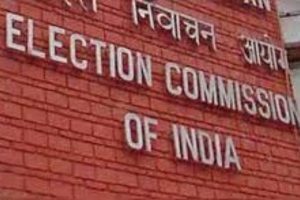During illness our bodies’ requirements for food and energy are high. Our body needs extra energy in the form of protein, carbohydrates and healthy fats to fight the infection and recover. Eating a nutritious meal not only provides micro and macronutrients essential for the body but also provides nutrients to reduce inflammation and recover faster.
Below are the top 6 important nutrition considerations which will help COVID-19 patients recover faster.
Advertisement
Meals and snacks: During inflammation, our body needs meals with more energy and protein. This makes a calorie-rich diet important at the time of recovery. Some protein and energy-rich meals are mung daal khichadi, barley khichdi, besan cheela, moong dal cheela, uttapam, suji or rava upma with ghee, oats with milk, vegetable dalia, rice kheer or vermicelli kheer, well cooked sprouts, pesarattu, bisi belle bhaat, quinoa pulao, rajgira or amaranth laddu, jam sandwich or butter sandwich, grilled paneer, mung daal cutlets, palak paneer, scrambled eggs, omelette, dal with vegetables.
Advertisement
Fluids: Hydration is essential in COVID-19 care. It helps in balancing electrolytes, keeps people alert and assists in metabolic function. Some fluids include kahwa tea with saffron and almonds, Noon chai, ORS, daal/whey/barley water, lemon ginger tea, turmeric and black pepper warm water, milkshakes (at room temperature) with nut powders like almond, pistas and walnut powders, paneer / whey water, vegetable juices and soups, chicken stock, vegetable stock, fresh coconut water, herbal teas with honey, bone broth and plain warm water with honey.
Listen to patient: Always, listen to patients’ “likes” and “dislikes”. In COVID-19 infection, patients experience loss of taste and smell. Also, taking numerous medications can cause taste changes. If the patient can’t chew foods, give them mashed potatoes with butter and milk, milkshakes, khichadi, dalia, oats, soft idli, soft mung daal cutlets, cream soups like cream of potato soup, pumpkin soup, mung daal soups, soft bread with jam and butter, burfi-like beetroot, cashew, besan burfi also help. You can add almond powder, walnut powder, pista powder, flaxseed powder, dates and milk powder to milkshakes to increase calorie intake.
If Platelets drop: Some people can have a low platelet count at the time of infection. Research shows that papaya leaf extract helps in increasing platelet count. Papaya leaf juice of 50 ml a day with honey is given for 1- 3 days. However, I suggest consulting your doctor before giving it to the patient.
Supplements: Vitamin D plays a key role in boosting immunity. Taking vitamin E also helps. These 2 vitamins are fat-soluble vitamins so they should be taken along with the main meal or any food which has fat, for example, milk or ghee or butter or nuts. Dosage vitamin D is based on the current serum levels and can be 1,000 Iu per day to 2,000 Iu per day, vitamin E can be taken 400mg per day. Vitamin C and zincovit are other supplements that help in building immunity. One has to note that zinc tablets should not be taken with citric acid. Gargle with betadine or turmeric in warm water 3 times a day. If one has a running nose steam inhalation 3-4 times a day is beneficial. Oil pulling is an ancient ayurvedic practise “gandusha kriya”- where a tablespoon of coconut oil or sesame oil is used for washing the mouth every morning.
Food poisoning: Avoid unpasteurised milk, raw fish, uncooked sprouts, raw chicken or uncooked chicken, mutton, eggs, raw salads, white cheese. Follow food safety protocols like washing hands, chopping boards.
Above is generic advice, please consult with your doctors for any specific health information for yourself.
Advertisement











